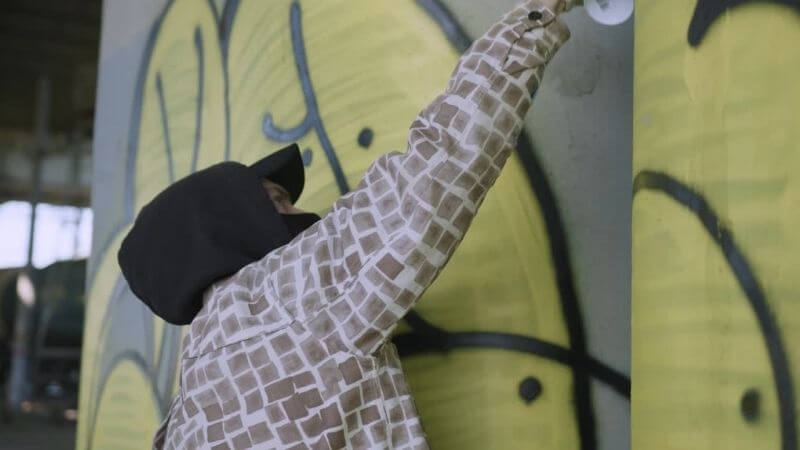Last Updated on June 28, 2022
Spray paint is amazing and fun until you accidentally inhale puffs of the spray paint material, and it reaches your lungs. That’s why during indoor paint, you must always take proper precautions and make sure the space has excellent ventilation.
But, even after your precautions, you might inhale the spray paint, and if it gets into your lunge in a large amount, the consequence can be fatal. Thus, we decided to put up this article on how to clean lungs of spray paint to ensure your maximum safety.
It is essential since inhaling too much spray paint can wreck-havoc on your brain cells, and once these cells start dying, you will die too.
Read More:
Understand Your Spray Paint
We have told you that too much spray paint inhalation to your lungs might kill you as brain cells start dying due to the spray paint. But why does brain cell dye due to spray paint? Is there anything in the spray paint that is responsible for such fatalities?
Well, the answer lies in the particles and elements used to manufacture spray paint. These paints often contain a high amount of Volatile Organic Compounds (VOCs). These VOCs are found in solvent-based paints mainly, and these are nothing except chemicals. The purpose of the VOC is to transfer the paint from the can to the sprayer. It also maintains consistency in the paint flow.
Some of the VOCs used in different paints are:
- Acetone
- Formaldehyde
- Benzene
- Toluene
- Xylene
Researches show that exposure to VOCs has negative impacts on your health. The effect will depend on how long you are exposed to the VOCs.
Hence, it is always recommended that you use the VOCs containing items as little as possible. Also, if you use them anyway, such as for spray paint, you need to take proper safety requirements.


Health Risks Related With Spray Paint
We know that spray paint fumes are harmful to our health surely. But can spray paint fume make us sick? Or, can too much inhalation of spray paint kill a human?
When you spray paint, at times, it might come across your skin and cause irritation and an itchy feel. If you have allergic problems, the itchiness caused by spray paint will be more. And when you swallow or inhale the paint, it can be particularly harmful, especially if it is an oil-based spray.
Some of the short-term health complicates caused by spray paint include:
- Irritation of the eyes, nose, or throat
- Headache
- Trouble breathing
- Feeling dizzy or light-headed
- Nausea
Thus, many people will get sick and may even need to admit to the hospital for long exposure to spray paint VOCs. And the consequences may even increase when you inhale it and the VOCs reach your lung. It may cause:
- Damage your nervous system
- It can kill your brain cells
- Damage kidney and lever
- Damage lungs and cause asthma
Hence, you must clear out your lungs from spray paint ASAP if you inhale it accidentally.
How to Clear Lungs of Spray Paint
If you inhale spray paint fume or puff, you shouldn’t get panicked. Instead, you should work with patience and attentiveness as spray paint won’t going to damage your body parts within seconds. It will need time. Also, remember that there’s no straightforward way to clean your lung of spray paint using any tools.
So, be steady and follow the suggestions we listed below:
1. Use air purifiers:
When you mount an air purifier at your home, you can inhale pure air. It will help you clear out the lung from the remaining spray paint. What’s more, inhaling pure air helps minimize the effect of VOCs to keep your lungs in good condition.
2. Breathing exercises:
There’re many kinds of breathing exercises that you may practice to remove spray paint from your lungs. Practicing breathing exercises regularly will improve the lung quite considerably, and you will see the differences.
Thus, you should practice some forms of breathing exercise to clear out lungs from VOCs to remain healthy and safe.
3. Go outdoor and inhale pure air:
You should go outside ASAP from the indoor place if you inhale spray paint. It will help you inhale pure air, free of volatile elements, so your lungs will get a chance to exhale the paint particles during breathing time.
However, you need to be careful and don’t overdo your breathing process. Instead, breathe normally for some time away from the spray paint location and see the difference.
4. Don’t use artificial scents:
Artificial scents also have a small amount of VOCs. Thus, when you inhale spray paint accidentally, you should avoid using artificial scents or perfumes for the next few days. It will help you eliminate the risk of VOC inhalation.
Also, it gives your lungs to work and reduces the damage caused by the spray paint. Thus, you should see an improvement within a couple of days.
Precautions While Spray Painting
We all know that it is always better to adopt preventive measures to reduce the negative impact of anything than remedying it after it catches you. The same goes for spray paint. When you spray paint any surface, especially indoor places, you must maintain some safety requirements. It includes:
- You must spray paint in a well-ventilated space. So, the windows and doors of the place must be open, and you should never shut them down while spraying the VOCs.
- Always use a face mask to prevent inhalation of the spray paint. When you have a face mask, it keeps the VOCs at bay, and you can work confidently.
Read More: Spray Paint for Indoor Surface Like Cabinets
Final Words
Inhaling spray paint is detrimental to your health, and an excess amount of it may even kill you. Thus, you must know how to clear lungs of spray paint ASAP. Henceforth, we have discussed breathing exercises and preventive methods to clear your lungs from spray paint.
We hope these suggestions help you in clearing out the spray paint with ease. Nonetheless, you should consult your physician if you feel too many consequences such as nausea, respiratory issues, or headache for a longer period.


I am extremely happy to share with you my experience throughout SprayerBoss. As a painter, I like to experiment with new sprayers from different brands. Since my first painting, I love to learn new things every time I doing a painting project for my own or clients. I have painted fences, walls, furniture, cabinets, cars, etc. but painting furniture is more challenging to me. Hope you will get the easiest way I found myself to overcome the difficulties towards a better finish. My hunger is to find the best paint sprayer that took less effort but budgets friendly.
